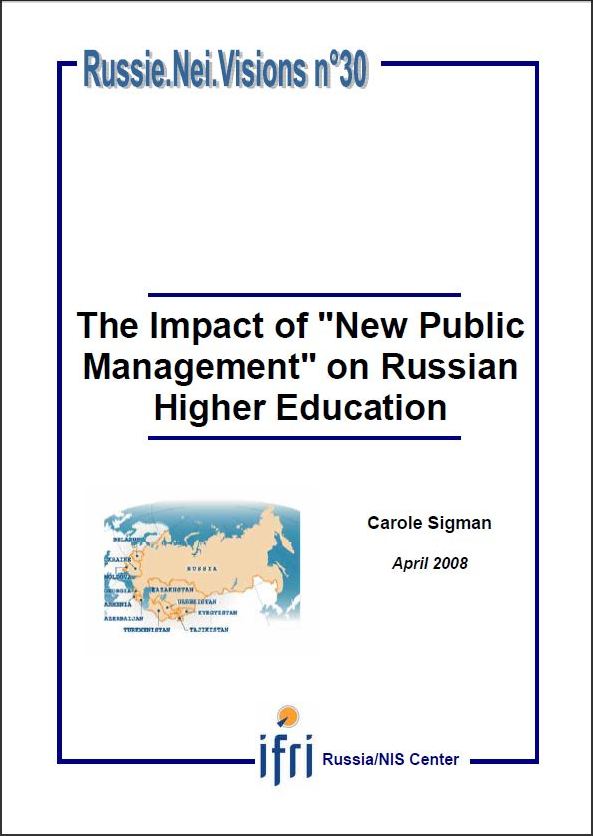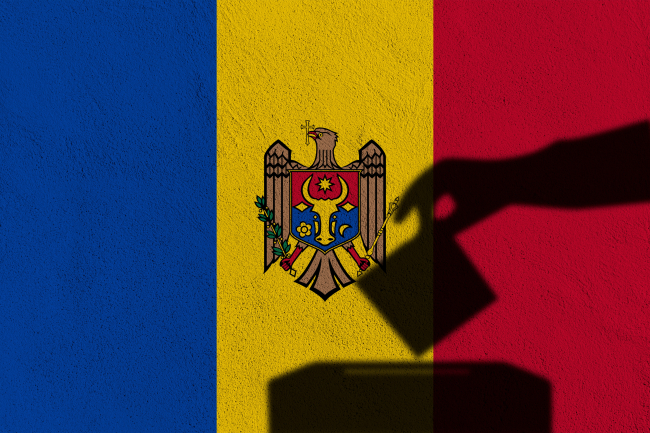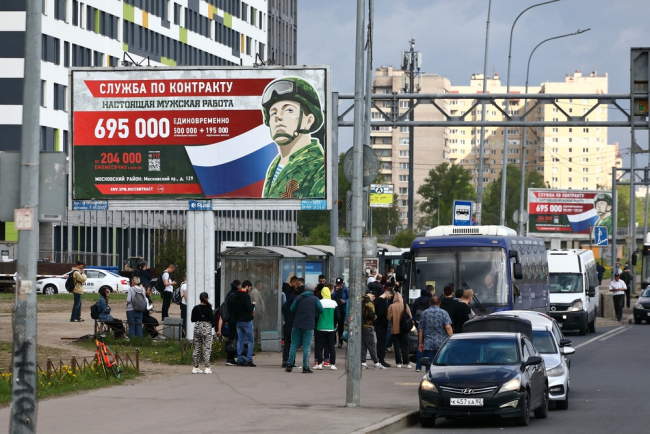The Impact of "New Public Management" on Russian Higher Education

The higher education reform underway in Russia is part of a much broader state reform project. Launched in 2004 at the start of Vladimir Putin's second term, this "administrative reform" grants the federal state the means to reclaim the public sphere, which largely escaped from its control during the 1990s. Energy incomes having considerably improved the public finances in the 2000s, the state can now consider reinvesting in and restructuring the public sphere as a whole. Its involvement cannot be seen as the construction of a "welfare state," but comes rather closer to an entrepreneurial state at the head of sectorial trusts aiming to be competitive on global markets. Such as it appears today, the restructuring of higher education is key to understanding how the formation of this entrepreneurial state is conceived and what possible structural uncertainties could arise.
This paper is based on the seminar presentation "Higher Education in Russia, Potential and Challenges," which took place on 28 January 2008 at the Institut français des relations internationales (Ifri).
Download the full analysis
This page contains only a summary of our work. If you would like to have access to all the information from our research on the subject, you can download the full version in PDF format.
The Impact of "New Public Management" on Russian Higher Education
Related centers and programs
Discover our other research centers and programsFind out more
Discover all our analyses
How the Russian Army Changed its Concept of War, 1993-2022
The traditional and high-intensity war that has occurred in Ukraine since Russia decided to invade raises a key issue: did post-soviet Russian strategic thought really prepare Russia for waging this war?
Russia's Nuclear Deterrence Put to the Test by the War in Ukraine
From the outset of its “special military operation” (SVO) against Ukraine on February 24, 2022, Russia, which possesses one of the world’s largest nuclear arsenals, has adopted aggressive deterrence measures and a resolutely menacing rhetorical stance.
Moldova's Crucial Parliamentary Election. What's at Stake?
On the occasion of Moldova’s National Day, August 27, 2025, Chișinău hosted a high-level European delegation composed of Emmanuel Macron, Friedrich Merz and Donald Tusk, who sought to reaffirm their support for the country’s sovereignty and pro-European course. This unprecedented and highly symbolic visit took place at a pivotal moment. Moldova is preparing for decisive parliamentary elections on September 28, whose stakes extend far beyond the national framework.
War as Social Elevator: The Socioeconomic Impact of Russian Military Keynesianism
In order to finance its war effort, the Russian state has spent substantial sums of money and implemented a form of “military Keynesianism” that is transforming society at both the socioeconomic and cultural levels. This has partially rebalanced the wide disparities in wealth, levels of consumption, and social prestige in Russian society by granting significant financial and symbolic advantages to peripheral Russia, which has long been overlooked by the central government.









